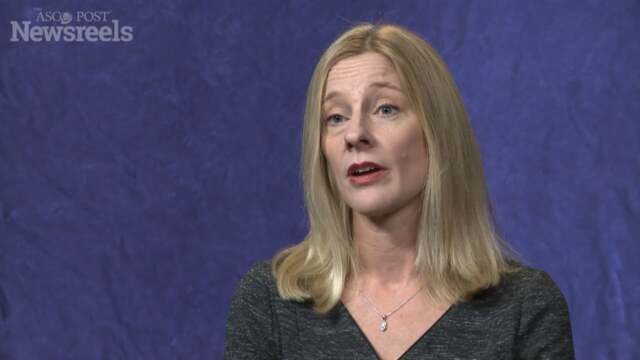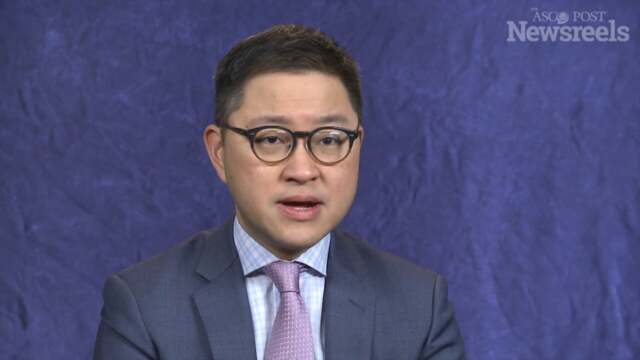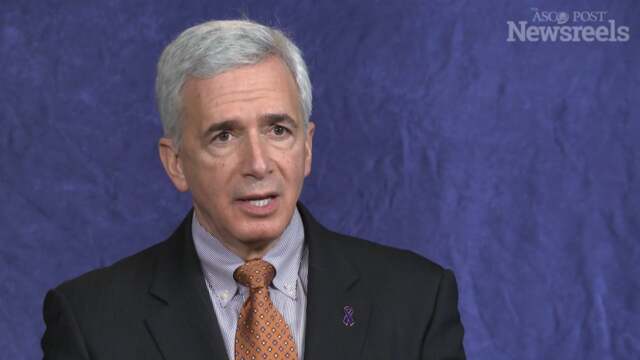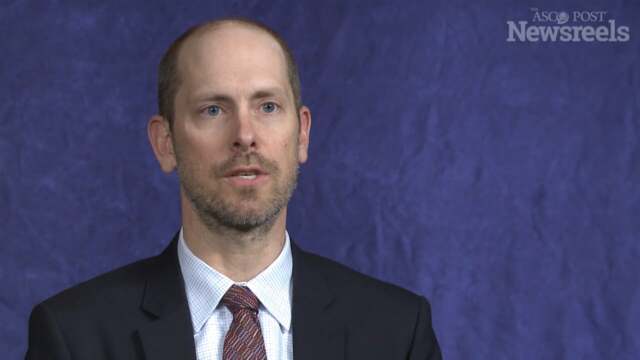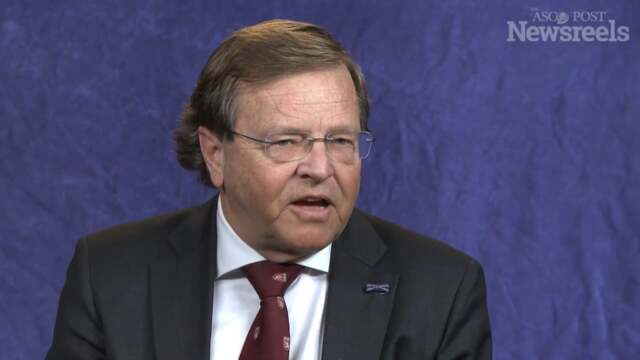Masanori Terashima, MD, PhD, on Gastric Cancer: Results of the JCOG1001 Trial
2017 Gastrointestinal Cancers Symposium
Masanori Terashima, MD, PhD, of Shizuoka Cancer Center, discusses phase III study findings evaluating bursectomy for patients with subserosal/serosal gastric cancer (Abstract 5).
Karyn A. Goodman, MD, of the University of Colorado School of Medicine, discusses initial study findings on PET scan–directed combined-modality therapy for esophageal cancer (Abstract 1).
Geoffrey Ku, MD, MBA, of Memorial Sloan Kettering Cancer Center, discusses the promise of immunotherapy drugs and the search for biomarkers that will help identify patients more likely to respond, not only to these medications, but to combinations of immunotherapies, other targeted treatments, chemotherapy drugs, and radiation.
Mark Talamonti, MD, of NorthShore University Health System, discusses the technical prerequisites for minimally invasive surgery in pancreatic cancers and the potential benefits to patients.
Michael J. Overman, MD, of The University of Texas MD Anderson Cancer Center, discusses study findings on nivolumab alone or in combination with ipilimumab in patients with DNA mismatch repair–deficient/microsatellite instability high metastatic colorectal cancer (Abstract 519).
Cornelis van de Velde, MD, PhD, of Leiden University Medical Center, discusses the International Watch & Wait database, established to track evidence on organ-preserving strategies in patients with rectal cancer (Abstract 521).
For More Information: www.IWWD.org
